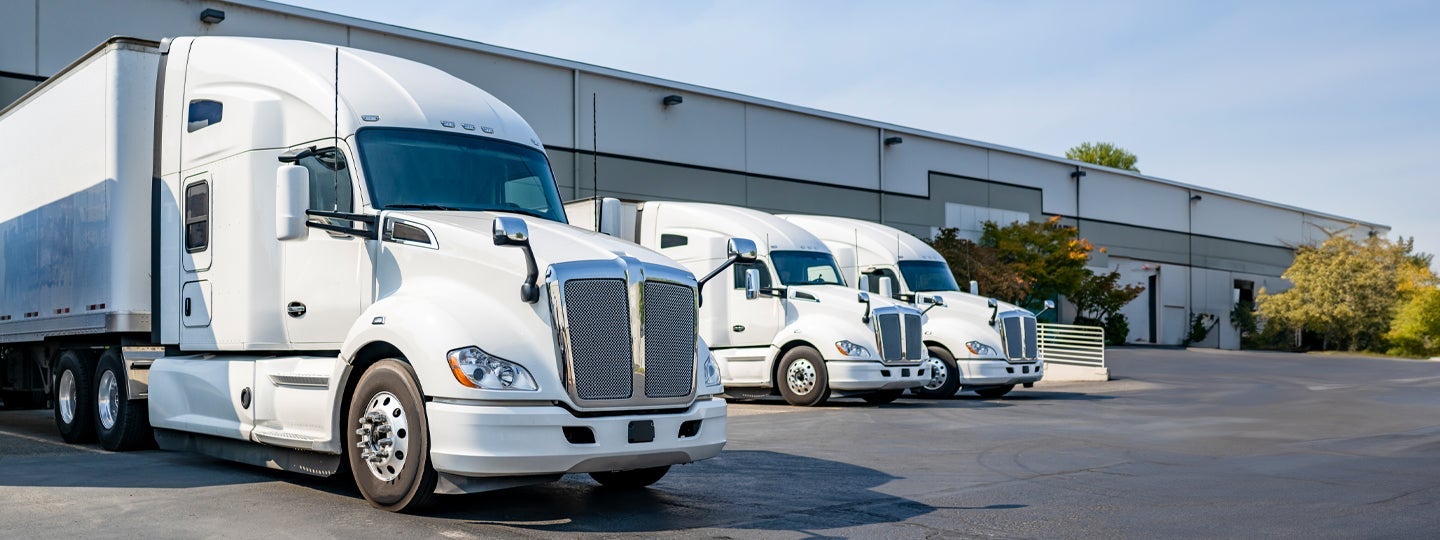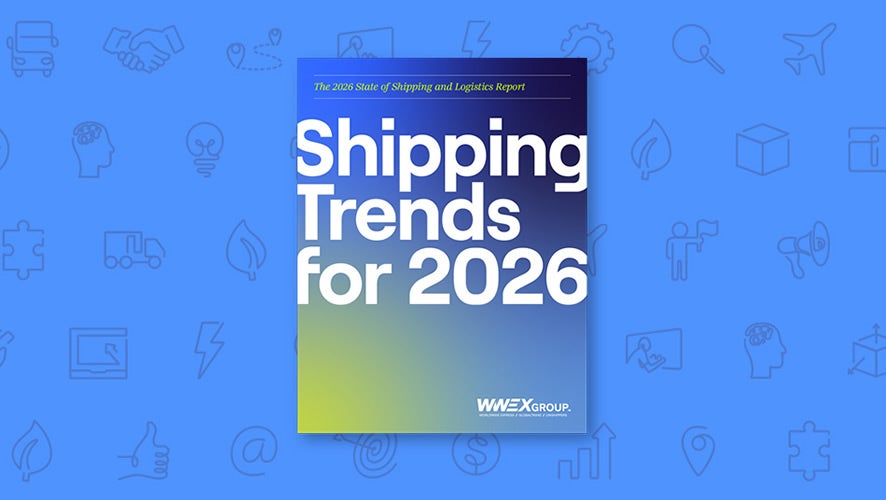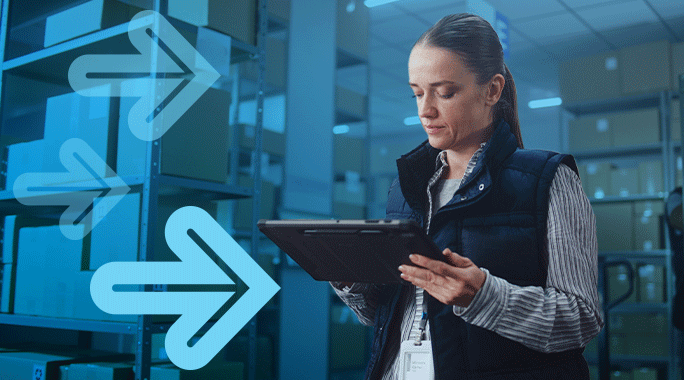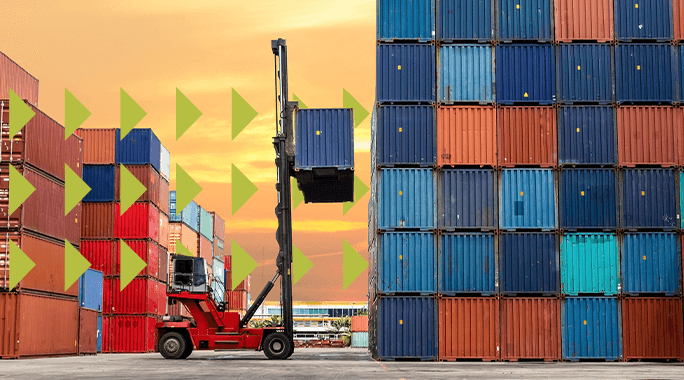BLOG POST
8 Questions About FTL Freight Shipping Answered

Reading Time: 4 minutes
As your business grows, the need for changes in shipping strategy may sneak up on you gradually. Have you been finding your less-than-truckload (LTL) shipments getting bigger, heavier or more frequent? Do you feel like the rules and extra fees of LTL are cutting into your efficiency and bottom line? If so, it's worth exploring the possibility of full-truckload (FTL) freight shipping.
Moving from LTL may seem like a big step, one you want to be fully prepared for. This guide will answer some of the common questions about the differences and potential benefits of FTL shipping.
1. What is the difference between LTL and FTL shipping?
With FTL shipping (also known as truckload shipping) you get a truck solely dedicated to your shipment! This is the fundamental difference from LTL shipping, where your pallets travel in trailers along with freight from other shippers.
2. How are rates calculated for LTL vs FTL freight shipping?
One big hassle (and source of rate hikes) in LTL is determining the freight class of your shipment according to The National Motor Freight Classification (NMFC). LTL freight must be assessed by density, stowability, handling and liability, which all affect rates. FTL freight shipping, on the other hand, is priced by weight, volume, distance and commodity, so it's simpler and avoids possible reclassification fees.
3. Is FTL cost-effective?
If what you need to ship is higher volume, it's likely going to save you money to ship it as a full truckload versus one or more LTL shipments. Besides the volume discount, you may be able to avoid common LTL fees for things like reweighing, redelivery, appointment pickup or delivery, oversized/odd-shaped pallets and more. However, you should always price out the two options if cost is your main concern.
4. Are there size or weight limits for FTL freight shipping?
Although there's no minimums, you probably wouldn't benefit from FTL for shipments less than 10,000 lbs. As for maximums, FTL shipments involve the use of an entire trailer dedicated to your shipment, so they can be a lot bigger and heavier than LTL shipments. You're generally limited only by the size and type of truck or trailer. They can often hold up to 30 pallets or 45,000 lbs. Learn more about when you should move from LTL to FTL shipping.
Of course, there are state and federal transportation regulations, road weight limits, and other restrictions on oversized or overweight loads. Work closely with your carrier or third-party logistics (3PL) provider to make sure you've considered all legal and practical angles.
5. How does FTL freight shipping differ from LTL freight shipping in terms of transit time?
For time-sensitive shipments, FTL may be the answer. Full truckload shipping tends to have faster transit times because there are no stops along the route to pick up or deliver other people's shipments. Loading and unloading can also sometimes go more quickly because workers won't have to move or unload/reload other pallets to get yours off the truck.
6. Is FTL better for fragile or high-value freight?
FTL shipping gives you a significant advantage if you want added peace of mind about a higher-value or fragile shipment. With a whole truck to yourself, there are no stops to deliver another company's products. Your freight won't be moved around or unloaded/reloaded to accommodate pickups and deliveries of other businesses' goods. There also won't be any transloading (moving your product from one truck to another at terminals).
Less handling of your product equals less chance of damage, theft or loss — it's as simple as that!
7. What can FTL freight shipping handle that LTL can't?
FTL can be used to ship oversized items or loads — products that are wider or longer than what LTL can carry. It's also the perfect solution if you need to ship items that are oddly shaped or won't fit on a pallet.
Since you have a truck all to yourself, you also have more flexibility in terms of equipment. For example, you can book a vehicle that fulfills special requirements: refrigerated trucks, flatbeds, dry van, and more.
8. Should I work directly with a carrier or go through a 3PL for FTL shipping?
It depends on your specific situation. If you have a robust in-house logistics department, working directly with carriers may be feasible. One thing to keep in mind is that, especially in today's challenging freight market, carriers may go out of business or reduce operations, forcing your staff to start the search for a new provider all over again. A 3PL can minimize the disruption to your operations because they have relationships with multiple freight carriers and can help you quickly switch to a new one.
A 3PL can optimize FTL shipping for you in several other ways as well:
- Expertise. A 3PL's expertise in FTL shipping can help you navigate the complexities of FTL shipping, provide advice on route optimization, carrier selection, and ensure compliance with regulations and requirements.
- Wide network. 3PLs have an established network of trusted and vetted transportation providers, which saves you time and effort in choosing carriers and adds peace of mind.
- Better rates. Those relationships with carriers means 3PLs can negotiate competitive rates on your behalf. They'll also help you determine whether FTL is the most cost-effective choice for your shipment.
- Streamlined operations. A 3PL can handle tasks such as load planning, scheduling, freight documentation and carrier communication. That lets you focus on their core operations, saving time and resources.
- Technology. 3PLs often provide advanced transportation management systems (TMS) and other technology designed to help you streamline your FTL shipping processes and gain better visibility into your supply chain.
- Scalability. As you grow or experience fluctuations in your shipping needs, a 3PL can quickly adapt to adjust capacity, find better shipping options or recommend cost-saving strategies.
- Risk mitigation. By ensuring carrier compliance, conducting thorough audits, and providing insurance options, a 3PL can protect small to mid-size businesses from potential losses and liabilities associated with FTL shipping.
Explore the Benefits of FTL with a 3PL Partner Like Worldwide Express
Worldwide Express has more than 30 years of success in the logistics industry and helps thousands of freight shippers of all sizes move products with great efficiency. We are also part of the WWEX Group family of brands. Combined, these companies make up one of the largest and most diverse 3PLs in the industry, providing shippers with top solutions that help them succeed. That includes teaming up shippers with carriers from our network of 75+ LTL and 85,000+ FTL freight carriers!
Ready to learn more about our freight service? Reach out for a free consultation.





